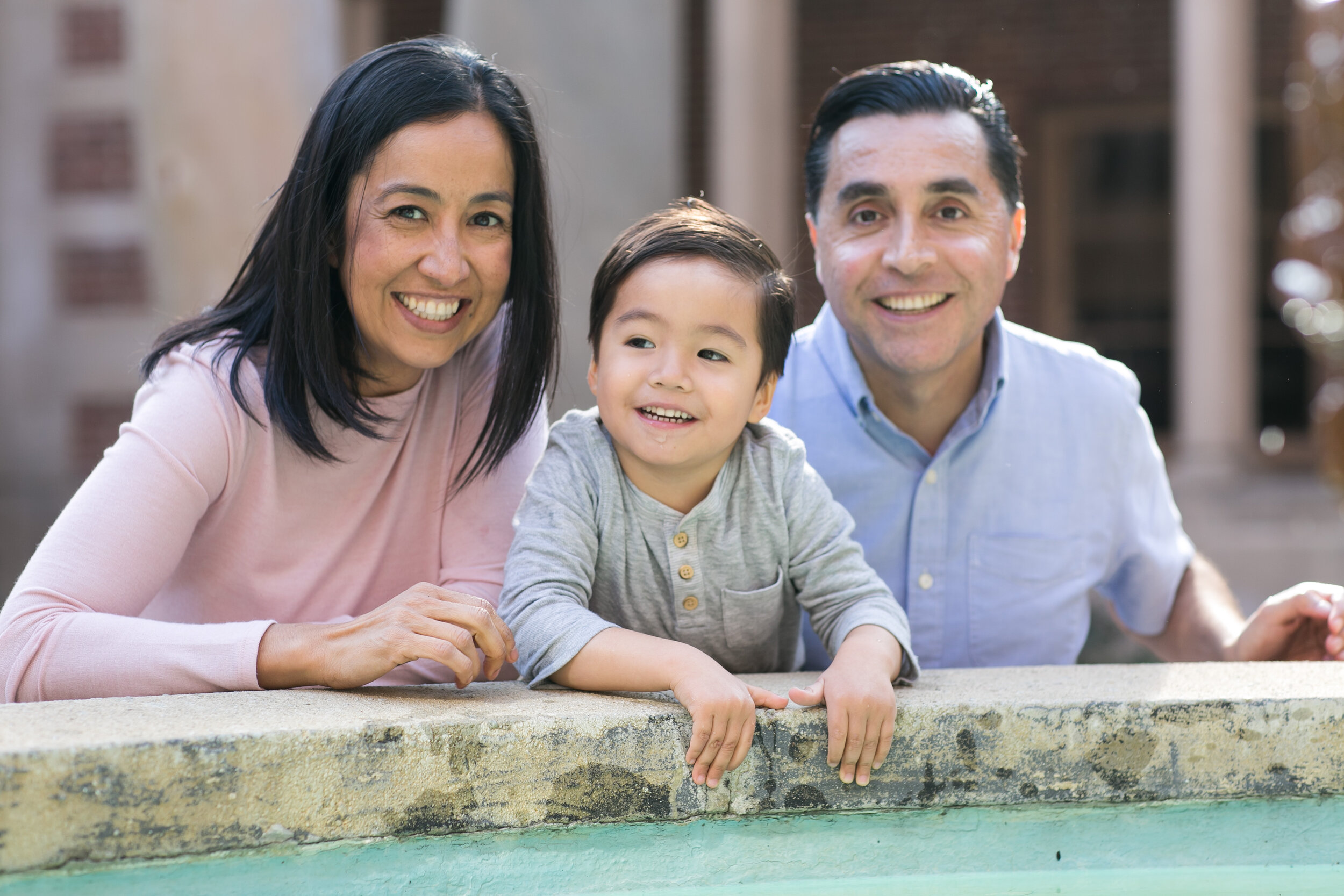The Stories We Tell - My Birth and Postpartum Story
This is, “The Stories We Tell,” a weekly series of true accounts in all things motherhood. These 100% vulnerable, raw and ferociously honest tales are from the LA-based storytelling event, Mothers Unleashed. This is Vanessa's story about how a complicated first delivery and postpartum experience, followed by two miscarriages, left Vanessa emotionally traumatized. Despite being a therapist, even she had trouble identifying her symptoms until it was almost too late. Vanessa is a wife, mother, licensed MFT, and she runs mommy and me classes, parenting classes, and support groups, in addition to performing parent coaching.
The transition to motherhood was a roller coaster of emotions and a rude awakening to the challenges of being a parent. For me, it all started the moment the doctor broke my water bag, and I was rushed to the operating room for an emergency cesarean due to a placenta abruption and my son’s rapidly weakening heartbeat. After waking up from the anesthesia in the recovery room next to my husband, the first image that I had of my son was through a cell phone photo. I was informed that my son was in the NICU for observation due to having swallowed blood, and I wouldn’t be able to meet him until the following day. Everything I imagined my birth experience to be – the expectations of meeting my son for the first time, holding him on my bare chest and looking into his eyes – had vanished.
When morning arrived, I was anxious to receive the "okay" to head over to the NICU and meet my son in person. The short wheelchair ride from my room to where my son was felt like an eternity. I finally arrived to the NICU, and there he was – in the incubator with wires everywhere – and my immediate thought was, “How am I going to be able to hold him like this?” Again, another expectation vanished! I had to settle for touching his hand with my index finger.
For years, I had been hearing of the feeling a mother experiences when she holds her newborn child for the first time and how it is an instant love that cannot be explained. Unfortunately, I had to accept the fact that it would not be my experience. All the expectations I had for my birth experience were gone. Being separated from him for three nights and two days was difficult. He had to stay in the NICU on a different floor, and I couldn’t do anything for his safety and well-being. Eventually when he was released from the NICU and brought to my room, he latched on to my breast, and I felt that there was an instant mother-son bond. This was the moment that I dreamed about during my pregnancy.
The transition to motherhood in the following weeks was not easy. During those weeks, I dealt with sleep deprivation, crying, sadness, anxiety, guilt, and the constant recollection of my birth experience. A month later, I realized I needed to go to therapy after watching a scene from Grey’s Anatomy in which one of the doctors loses her unborn baby. The scene took me back to the night of my own experience, and I started to cry and could not continue watching the show. This was the moment that I realized that I was traumatized and that what I was feeling was not the normal Baby Blues. Looking back, I had constant flashbacks, re-experiencing the trauma over and over in my mind, crying often, was moody, and had anxiety over my son’s well being. That same day, I shared with my husband what happened and let him know that I needed to go to therapy. My husband supported me and helped me find a therapist. Within a couple of days, I had an appointment. The therapist assessed if I needed to be seen right away but I let her know that it was not an emergency and I that I could wait a couple of days. As a therapist, I assessed myself not being high risk, and I knew I could wait. Being a therapist helped me recognize my symptoms and the need to seek help in order to work through my trauma and feelings.
I was in therapy for a few months where I worked through my feelings, trauma, and where I grieved my expectations of my birth experience. In 2018, only two years after I thought I had worked through my trauma, I experienced two miscarriages. Again, I found help in therapy.
The second miscarriage was more emotionally painful and challenging to face than the first one. I felt like I was in a dark place, but at the same time, I knew that I needed to be the light for my son. Knowing that children pick up on their parents’ feelings and moods, I felt like I needed to put my feelings to the side and be emotionally and physically present for my son. This took so much energy out of me that I just didn’t have time to deal with my feelings, and all I wanted to do when my son went to bed was to be alone and sleep. As people, we are good at sweeping our emotions under the rug, but this doesn’t mean that they go away. Emotions eventually come out in different ways and forms. For me, I found myself randomly crying when I was in the shower, driving, or in bed. Other days, I felt angry. I was angry at God, angry at the fact that my son’s birth did not go as planned, angry that I had two miscarriages and that I did not understand why this happened, angry that it took three years to conceive my son, and angry with the whole process of child bearing. During this time, I became very anxious. I would constantly worry about something happening to my son, most of which was irrational. For example, I would worry about him running out into the street despite the fact that our house was well off the street, he wasn’t tall enough to reach the front door knob, the knob had a child safety lock, and there was usually someone else at home with me. I would also worry about him dying in his sleep, to the point where I would constantly check up on him even though he would be sound asleep and nothing potentially dangerous in his crib. I had daily nightmares for about four months that were triggered by the anxiety I was feeling. My feelings didn’t stop at sadness, anger, or frustration. I felt an overwhelming feeling of wanting to escape.
One Sunday morning, on the way to breakfast after feeling triggered by something I had heard during a church sermon, my husband, my son, and I were on the 5 freeway when I felt overwhelmed and actually thought to myself, “What if I just jump out of the car right now so that I don’t have to do deal with these feelings anymore?” That day, I remember thinking, “I don’t want to tell my therapist that I had a suicidal thought. I won’t tell her.” Being a therapist myself, I'm fully aware of what this could lead to. I began to think of the worse case scenario, which is being put on a psychiatric hold and child protective services getting involved by opening up an investigation case to determine if I am a fit mother to take care of my son.
Needless to say, I was fearful to share this experience with my therapist. I knew I wasn’t suicidal. It was just that I was tired of dealing with this situation and being exhausted because of how I was feeling. During my next therapy session, I did end up telling my therapist everything. Fortunately, she had enough experience to know that I was not actually suicidal and that I had no plan to take my own life. She looked at me, acknowledged my feelings, and told me that my thought of jumping out of the car was a desire to escape from everything that was going on with me. In that moment, I felt relieved that she understood how I felt. As the days went by and I continued with my therapy sessions, I felt my depression slowly melting away.
My healing came by talking about and working through my feelings in therapy and seeking support, and allowing myself to grieve the loss of the expectations I had for my birth experience, plus letting go of the hopes I had for my two unborn babies. I understand that part of a treatment approach is to determine a diagnosis, but despite that, I never asked my therapist for my diagnosis. The reason for that is that I did not want to label myself. I don’t personally believe putting labels on people is the best thing. After hearing a mom speak at a Maternal Mental Health Now event, I realized that what I had gone through was postpartum depression. Through my journey, I learned to appreciate what I have and to be thankful for the opportunity to use my experiences to help other mothers.
What I would like to leave you all with is that if you're going through something like this or if you know someone who is, the most important thing is for you and them to know that we're not alone. There is help available. Despite having been trained in this field, even I had difficulty recognizing the symptoms within myself, so it’s very likely that postpartum depression is going unaddressed in the lives of other women in your life. We need to do everything we can to raise awareness and eliminate the stigma that is associated with mental health issues.









